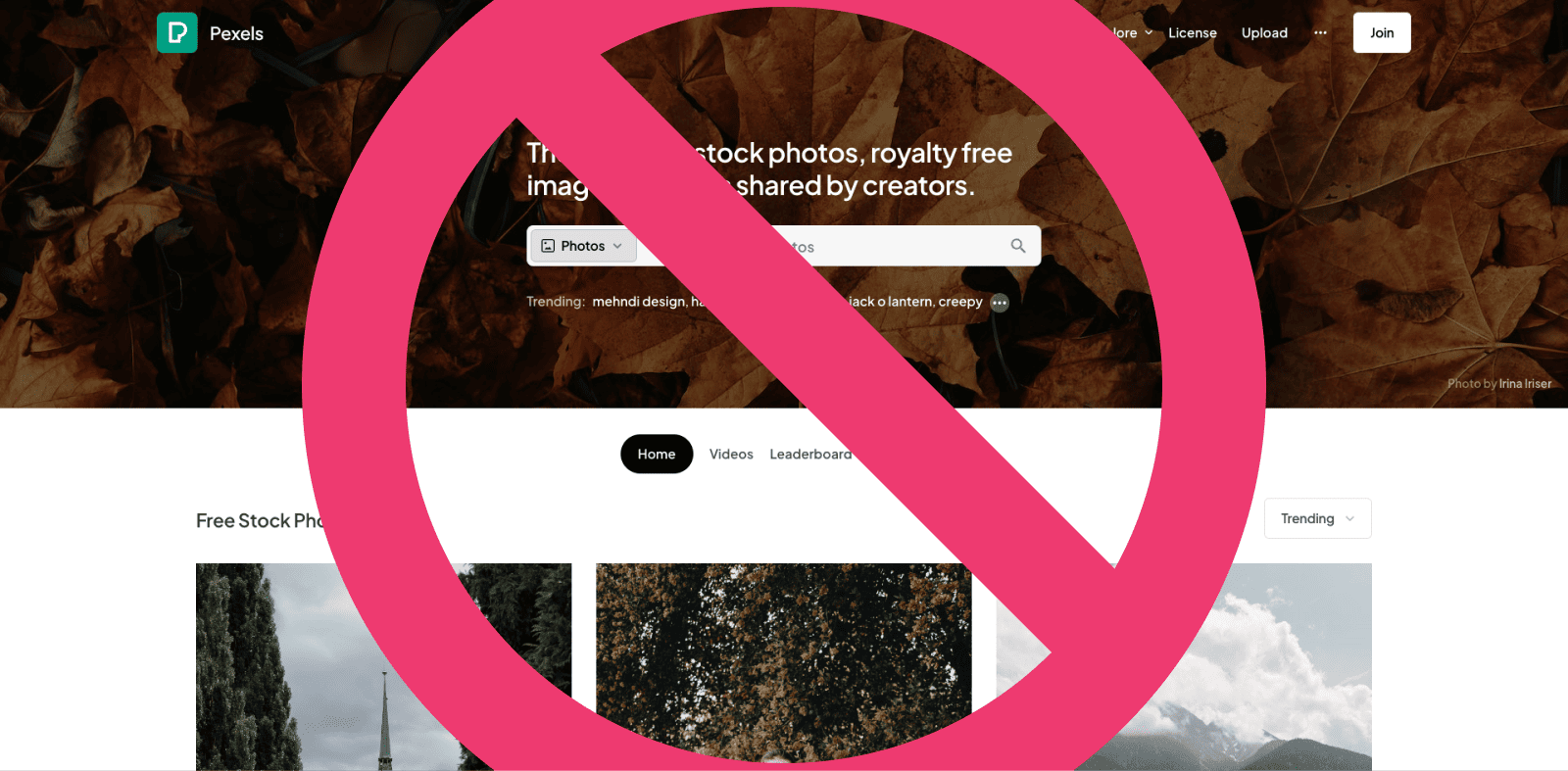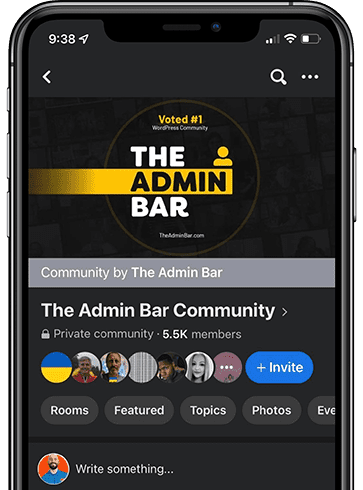Whether you’re updating your current website or developing a brand new website for one of your clients, building and maintaining powerful websites requires a lot of content.
Between compelling web copy, interesting blogs, and all the visual imagery that comes with them, there’s a lot to think about – and that’s before you’ve even thought about social media posts!
So, when there are options available to reduce some of that content workload for you and your clients, you’re going to use them right?
As the digital world’s insatiable demand for content continues to rise, so does the amount of free stock photo sites, with a plethora of options for digital agencies and content creators to choose from.
As an owner of a web design agency, there was a time when I relied heavily on free sites like Unsplash or Pexels for most of my stock photos.
While all stock images are generic, you can find a lot of pretty decent stuff out there — and you can’t beat the price!
But I’ve since written into company policy that images from free stock photography sites are strictly prohibited.
Where did this complete U-turn come from?
Let’s talk about why I’m no longer using free stock images, and why you probably shouldn’t, either.
Why you shouldn’t use free stock photos anymore
Free stock photography sites certainly provide a quick and cost-free solution to a portion of the web design process. But I’ve come to realize that the payoff simply isn’t worth it for a few reasons.
Let’s unpack.
You don’t actually know who owns the image
Free stock sites typically run off the model that users (so, pretty much anyone) can upload photos to be downloaded for free online.
Their policies state that if someone uploads a photo, they confirm that they (a) own the rights to that photo and (b) are releasing those rights.
But, there are very few checks and balances in place to ensure that that first part is true – something that many businesses are unaware of.
It’s actually much easier than you’d think to download a copyrighted image and upload it to one of these free stock websites, whether maliciously or accidentally.
Users then download these photos, assuming they have the right to use them freely, without really knowing the whole truth.
That’s a huge potential liability! Especially now that Getty Images makes it possible for copyright holders to identify these images in bulk.
You might get caught up in a copyright infringement mess
It’s one thing not to know where the image you’re using came from.
But on top of this, because you don’t need to be a professional to upload to these sites, many people do so without knowing what they’re doing – or the potential implications.
For example, lots of people upload their original photography, assuming they own the copyright and can release it.
Unfortunately, that’s not always the case.
Is there a person in the photo? If so, the model will likely need to release their rights to that photo.
Is there something trademarked in the photo? Most people aren’t aware that major landmarks like the Eiffel Tower or the Chrysler Building (to name a few) are often trademarked, meaning their images are prohibited from unauthorized commercial use.
It’s a legal minefield that I know I’m certainly not prepared to navigate – and I don’t think many other agency owners or freelancers are either, especially with our livelihoods at stake!
It could potentially destroy your client relationships
It’s the nightmare scenario we all want to avoid: our clients getting hit with a fine or lawsuit for using a copyrighted image we accidentally gave them.
They will, of course, turn to us asking WTF happened?
They’ll rightfully assume that because we’re professionals, we would never do something illegal in creating their website.
Unfortunately, I’ve heard too many horror stories where this exact thing has happened after a photographer has changed their mind and taken an image down from the free stock site, demanding thousands of dollars for copyright infringement.
If this were just your blog, it’s not a big deal.
But when you start using free stock photography commercially and selling it as a service to clients, you’re opening yourself up to some serious liability, potentially damaging your agency’s reputation.
Of course, it’s great to have a contract to protect you — but getting to the point where you have to argue over terms in an agreement is not a great place to wind up!
Plus, how confident do you feel about your contract protecting your entire livelihood? I don’t want to test it – and I don’t think it’s wise for other small agency owners or freelancers to either!
To me, at least, it seems much easier (and more ethical) to license things right from the get-go rather than argue over contract terms in court. (Even the thought of that alone gives me anxiety!)
Your business relies entirely on the trust, loyalty, and support of your clients.
Without them, it simply doesn’t work – and the convenience of a free stock photo isn’t worth risking it all for!
Looking for alternatives to using free stock images?
Now that you understand why you shouldn’t use free stock photos, you’re probably wondering how you’ll come up with all the visual content you need to build websites for your clients.
I mean, you could try to keep an inventory of what you have license to and what you don’t on any given site.
But with so many projects on the go, who has the time? Also, the licensing permissions on a particular image could change without your knowledge, so it’s not necessarily a practical solution.
I’ve found it’s much easier to use imagery you know you have license to exclusively.
User-generated photos
It’s always better to ask your clients to supply personalized, user-generated content taken by professional photographers.
Encourage them to organize a photo shoot explicitly focusing on highlighting their products or services, giving insight into their business, and introducing their audience to the team.
While you’re waiting for these images in development, UtilEngine has an excellent placeholder image generator that I’ve found useful.
Subscription-based websites
When trying to keep track of what you do have license to, often the image in question has since been removed from the site you got it from originally, meaning you might not have documentation of the license.
This is a huge part of the reason why I use Envato Elements.
When you license a photo, you have rights to it even when your subscription to Envato is over!
You can download the license for every photo/asset you download, allowing you to attribute every image to specific projects and provide all the licenses to clients right away.
AI-generated images?
Then there is, of course, the matter of AI-generated imagery, which has been gaining more popularity in recent months.
But this opens up a whole other can of worms. The short of it is: AI-generated images can’t be copyrighted, meaning you can never actually own them, so is that really a solution?
Will you think twice next time before using a free stock photo on your website?
Of course it’s ultimately a personal decision whether you continue using free stock photos for your website projects.
After learning about the potential legal risks and appreciating the value of providing personal, unique content in terms of captivating an audience, I certainly won’t be going back to my freebie-using ways.
What are your thoughts? Got any more insights to share on copyright issues or other more reliable stock photo sites you recommend?
Join the conversation over on The Admin Bar Facebook group, a like-minded community of WordPress nerds!





